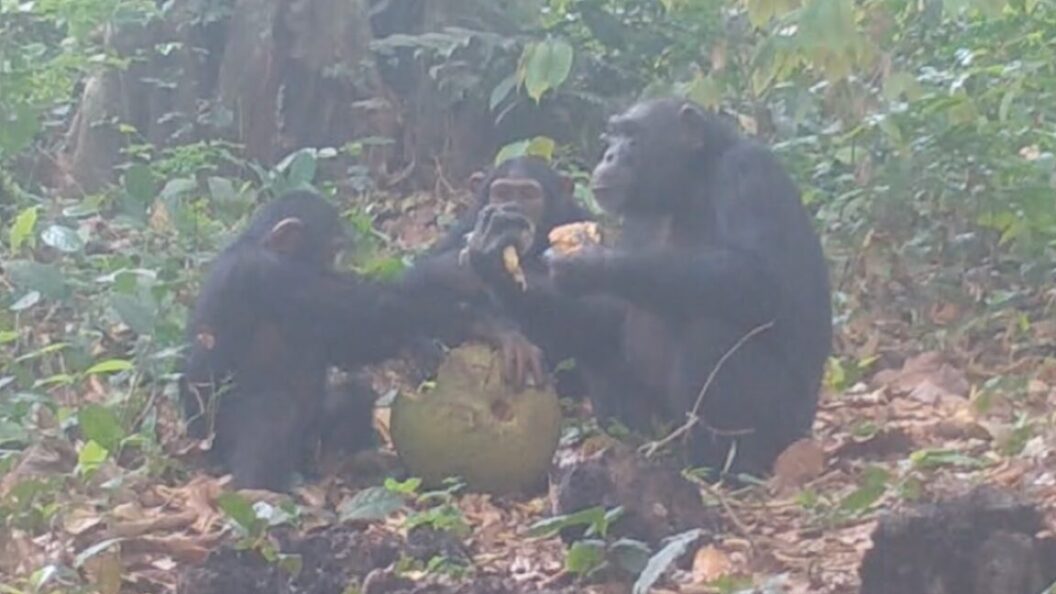Wild Chimpanzees Caught Sharing Alcoholic Fruit: A Remarkable Discovery
Introduction
In a groundbreaking study, researchers have observed wild chimpanzees engaging in a behavior that mirrors a distinctly human activity: sharing food and drinks, specifically fermented fruit with alcohol content. This remarkable finding was documented in a recent study published in Current Biology, marking the first known instance of nonhuman great apes sharing alcoholic foods in the wild.
The Fruit and Its Fermentation
The researchers focused on the African breadfruit, scientifically known as Treculia africana, which grows in the chimps’ natural habitat within Cantanhez National Park in Guinea-Bissau. The fruit undergoes a transformation as it ripens, changing from a hard green exterior to a spongier yellow texture. This seasonal fruit is essential to the diet of the local chimp population as they consume significant amounts of fruit daily.
To capture this behavior, the authors utilized camera traps at three distinct locations within the park, observing unhabituated chimpanzees. The study yielded 10 recorded instances of selective fruit sharing among 17 chimps, with a clear preference for the riper fruits, which contained higher levels of alcohol.
Alcohol Content and Consumption
From April to July 2022, the researchers measured the ethanol levels in the fallen fruits using a portable breathalyzer. The findings revealed that 90 percent of the sampled fruits contained some level of ethanol, with the ripest varieties registering an alcohol by volume (ABV) of 0.61 percent. While this percentage is considerably lower than typical alcoholic beverages consumed by humans, it is noteworthy that fruit constitutes 60 to 80 percent of the chimps’ diet, suggesting that the overall consumption of alcohol could accumulate over time.
Despite this increased exposure to alcohol, researchers assert that it is highly improbable for the chimps to experience intoxication. They emphasized that attaining a drunken state would not provide any evolutionary benefit. Interestingly, they noted evidence suggesting that the common ancestor of African apes may have possessed a biological mechanism that enhances their ability to metabolize alcohol.
Implications of the Findings
The observation of chimpanzees sharing fermented fruit raises intriguing questions about animal behavior, social structures, and the potential for cultural practices among nonhuman species. This study not only sheds light on the dietary habits of chimpanzees but also suggests a deeper complexity in their social interactions reminiscent of human behaviors.
Moreover, understanding how these animals engage with fermented sources of food may provide insights into the evolutionary history of alcohol consumption among primates, including humans. As the possibility of cultural traditions rooted in food and drink sharing becomes more evident, this research could pave the way for further investigations into animal cognition and social dynamics.
Conclusion
This study of wild chimpanzees indulging in shared fermented fruit represents a significant leap in our understanding of animal behavior and social sharing. The findings challenge preconceived notions about the exclusivity of such behaviors to humans and highlight the sophisticated social lives of nonhuman primates. As these insights unfold, they remind us of the remarkable connections that exist between species and the potential lessons we can learn from our closest relatives in the animal kingdom. The implications of this research may extend beyond biology, possibly influencing our understanding of social structures and cultural practices in the natural world.









